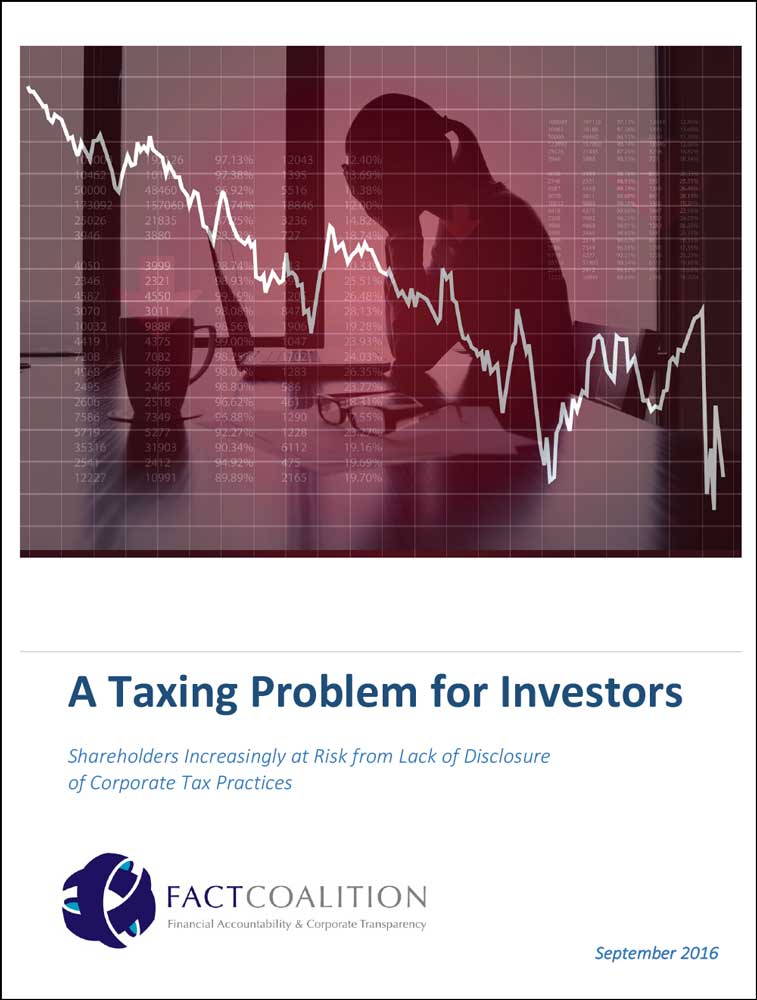Investors are at an increasing risk due to the lack of information disclosed by companies about their tax practices, according to this September 2016 report published by the Financial Accountability and Corporate Transparency Coalition (FACT Coalition). Titled “A Taxing Problem for Investors: Shareholders Increasingly at Risk from Lack of Disclosure of Corporate Tax Practices,” the report finds that multinational companies have become increasingly reliant on offshore tax avoidance practices to boost short-term earnings in recent years, yet disclosure requirements haven’t kept pace with this changing world. As governments around the globe struggle with growing budget deficits, tax authorities are increasingly cracking down on aggressive tax avoidance practices, which can have a significant impact on shareholder value.
Country-by-Country Reporting
In June 2015, the U.S. Treasury Department finalized a rule requiring large companies to disclose to the Internal Revenue Service their profits, revenues, and tax payments on a country-by-country basis. Tax authorities in many other countries are implementing similar measures—known as country-by-country reporting—after the G-20 group of leading economies endorsed the practice as the international norm.
The U.S. Securities and Exchange Commission (SEC) launched its “Disclosure Effectiveness Initiative” in December 2013. As part of that process, the agency published a “Concept Release” in April 2016 seeking feedback on what companies should be required to disclose to investors. Several of the 340 questions-posed deal with tax matters. Several prominent investor groups weighed-in, submitting comments calling for a country-by-country reporting requirement, including the SEC’s Investor Advisory Committee. The report notes that the Commission could easily require that companies provide country-by-country reports to the SEC as a result of their Disclosure Effectiveness Initiative, and—in addition to a number of other recommendations—it calls on them to do so.
For markets to function properly, it is critically important for investors and the public to be armed with sufficient information to meaningfully assess the business operations, management, and risks of U.S. public companies. As multinational corporations have increasingly relied upon complex, international tax strategies to improve their bottom lines, the SEC’s disclosure framework has not kept pace.

